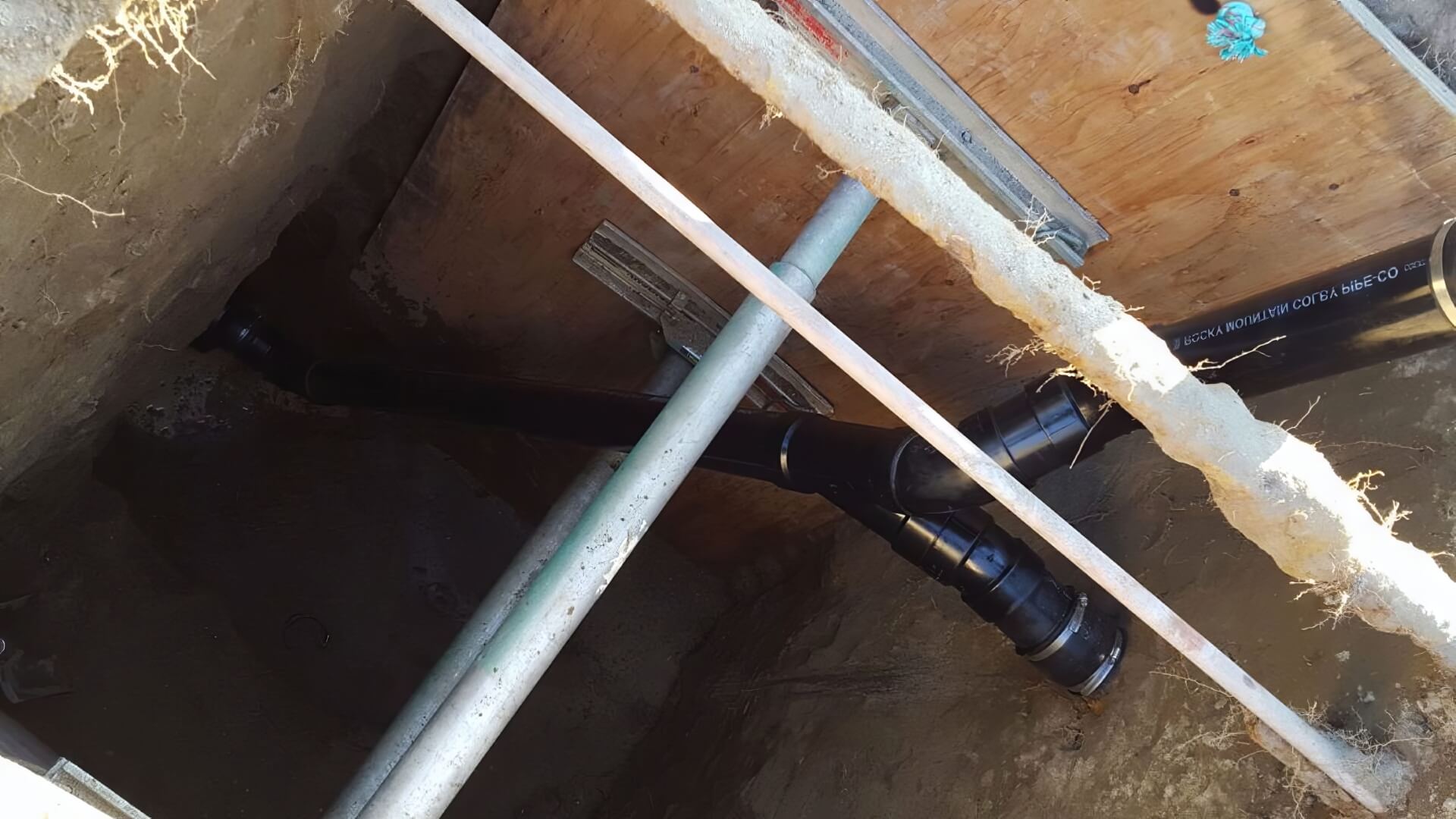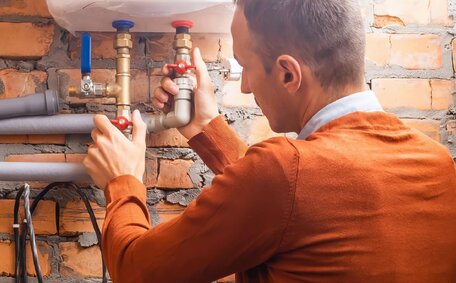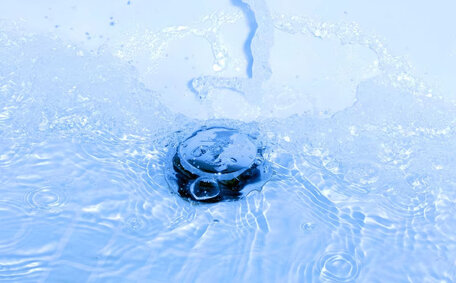Introduction to Common Plumbing Materials
Each material comes with a set of advantages and limitations, making them distinctly suitable or unsuitable in relation to cost, installation ease, durability, and water flow.
Regulations, local water quality, climate, and usage patterns also impact deciding which pipes best suit different types of plumbing.
Stainless steel pipes ensure that your home plumbing system has the right pipes, offering durability and lower susceptibility to rust over time compared to galvanised options. Copper PEX materials possess excellent corrosion resistance but come at a higher initial cost.
By understanding the unique properties of common plumbing materials, Ryde homeowners can ensure the chosen plumbing pipes correspond to your pipe requirements, serving your bathroom needs adequately. When it comes to your bathroom renovation or kitchen upgrade, the experts at Ryde Plumbing have the wisdom to advise on the best plumbing solutions that fit your specific requirements.
Key Factors When Selecting Plumbing Pipes
Selecting plumbing pipes for your Ryde home involves considering key factors such as:
- Usage - Consider if the pipes will ensure a dependable hot and cold water supply and their pressure requirements.
- Longevity - Copper and PVC pipes are designed for a long lifespan across various water applications, outperforming steel and iron pipes.
- Environment - What are the climate conditions? Determine which pipes to use ensuring they’re UV-resistant if exposed.
- Cost - Expect higher initial expenses with copper and steel pipes.
- Water Quality - Pick corrosion-resistant pipes if water is hard or acidic.
- Codes - Make sure all materials conform to Australian plumbing regulations.
It’s also important to know which pipes best suit compatibility with your home’s layout and that connect properly with existing supply lines, and Assortments of plumbing fittings for pipes like PVC and copper are available, catering to diverse renovation projects. Consulting with Ryde Plumbing’s experts can help you in selecting the right pipes and plumbing fixtures for your needs while meeting local requirements.
Pipe Material Compatibility
Selecting plumbing materials that are compatible with Ryde’s water supply is crucial. Selecting the appropriate pipe materials can mitigate limescale buildup and corrosion in your main water supply line, especially in areas with hard water. Acidic, soft water also corrodes certain metals.
Copper piping is one most highly compatible options across varying water types compared to other materials.
Although PEX is corrosion-resistant, it requires specific fittings for material transitions. Galvanised steel handles soft water but corrodes faster with exposure to hard water. Although PEX is corrosion-resistant, it requires specific fittings for material transitions.
The experts at Ryde Plumbing can guide you through selecting the most compatible plumbing pipe types for the unique demands of domestic plumbing in local water conditions. We stay up-to-date on material specifications and factor in elements like pH, mineral content, flow rate and exposure to correctly ascertain compatibility.
Climate and Environmental Considerations
Climate and local conditions in Ryde play a pivotal role in determining pipe robustness and suitability. Pipes located outdoors or underground need to withstand high UV exposure, drastic temperature fluctuations and soil conditions.
Copper, PEX and PVC pipes made to withstand environmental factors such as sunlight, moisture, and soil acids also promise an easy install, which is a relief for those managing a DIY project. During Sydney’s hot summers, PVC’s lower heat resistance may become an issue. Hard water also impacts pipes in your house more severely with higher average temperatures.
Freezing winters can also subject pipes to expansion and contraction. Insulating exposed pipes is recommended.
Ryde Plumbing remains well-versed when it comes to understanding how environmental factors affect the performance of different materials in your homes. We recommend the most durable, long-lasting plumbing solutions for your unique requirements.
Assessing Your Plumbing Needs
When it comes to your plumbing needs, reflect on the age and layout typical of Australian homes, including family size and usage expectations now and into the future, considering the types of materials commonly used in plumbing. This helps match materials and pipe dimensions to adequate water flow and pressure.
Inspect existing pipes for condition, corrosion or blockages, ensuring they are compatible with the materials chosen for replacement. Facilitate transitions between dissimilar metals with insulating fittings. Account for scaling or erosion with more resilient pipes.
Analyse regular usage for showers, taps, laundry, and appliances to ensure your residential commercial setting is equipped with pipes sized correctly for adequate water supply lines and tankless water heating units. Consider upgrading for heavy simultaneous loads or future high-flow fixtures. Commercial-level plumbing better handles higher pressures.
Discuss options with Ryde Plumbing to balance renovation costs with long-term functionality. We identify the best materials and accurate installation processes, ensuring it’s done flawlessly to meet household water demands now and into the future.
Water Pressure Requirements
Selecting pipe materials capable of handling required water pressure is vital for reliable plumbing performance. High-pressure scenarios require pipes that can handle substantial stress without bursting or leakage over the course of their use.
In commercial settings, greater pressure accommodates simultaneous heavy fixture usage. Copper pipes tolerate pressures up to 400 PSI in some applications. Consult manufacturers’ pressure ratings when choosing pipes.
PEX pipe is most commonly used for low-pressure residential plumbing applications, whereas industrial scenarios necessitate higher-grade plumbing supplies that can endure pressures beyond 140 PSI.
Excess water pressure also accelerates pipe corrosion and strains connections. Ryde Plumbing recommends pressure-reducing valves if your pipes in the supply lines provide over 80 PSI to households. We can advise suitable materials for handling dynamic pressure fluctuations in various home or business contexts.
Exposure to Elements
Consider any outdoor exposure to elements that may cause wear and corrosion when selecting plumbing materials. Pipes located above ground or underground may endure temperature fluctuations, moisture, soil acids, UV rays from sunlight and more in the Ryde climate.
Copper, PEX, and PVC generally resist outdoor elements well, whereas galvanised steel is more susceptible to corrosion upon exposure. The pros cons of galvanised steel include a zinc coating that erodes quickly when exposed to moisture, soils, and sunlight. Even PEX piping can become damaged and cracked after prolonged UV exposure if not shielded.
Applying insulation, protective coverings, and choosing materials like brass piping can enhance pipeline longevity against outdoor elements. The team at Ryde Plumbing stays up-to-date on material specifications to recommend the most durable plumbing solutions for your unique requirements, depending on installation location and local environmental conditions.
Types of Plumbing Pipes
When it comes to residential and commercial plumbing systems, there are several most common types of pipes used to transport water and gas throughout buildings. The primary materials utilised in both residential and commercial plumbing systems are:
- Copper – Offers excellent corrosion resistance and durability. Easy to install and widely used for water supply lines.
- PEX – Flexible plastic piping that is more affordable than copper. Simple to manoeuvre into place.
- PVC – An economical plastic material that is lightweight and easy to cut. Used for cold water delivery.
- Galvanised steel – Provides strong pressure handling but requires protection from corrosion over time.
- Cast iron – Durable pipes often installed for main drains and vent stacks.
Each material has unique strengths and limitations in regards to cost, longevity, pressure tolerance, temperature ratings and installation ease. Environmental factors, such as UV exposure and soil conditions, can influence the performance of various types pipes.
The team at Ryde Plumbing can provide counsel to help you choose your right plumbing solutions to meet your specific needs and demands while complying with local standards.
Copper
Copper pipes qualify as a popular choice, commonly used for their excellent longevity and corrosion resistance for water supply lines. This robust material can endure high pressures and can last over 50 years with proper upkeep.
Key benefits of copper include:
- Corrosion resistant, including to acidic water
- Handles high pressure scenarios up to 400 PSI
- Doesn’t leach chemicals into water
- Resists scale buildup
- Relatively easy to install
Copper and PEX carry different considerations; copper does carry a higher upfront cost and requires careful joining with soldered fittings while PEX offers greater flexibility. Overall though, its unparalleled durability and safe transport of drinking water over decades of use make it a sound investment.
PEX
PEX (cross-linked polyethylene) piping has gained popularity in recent years as a flexible, affordable alternative to traditional metal pipes. Some key advantages of PEX include:
- Simple installation - Its bendability makes routing PEX pipes much easier.
- Cost savings - PEX costs less than copper, galvanised steel and CPVC.
- Resistance - PEX can withstand extremes of hot and cold water.
- Longevity - Expected to last over 50 years.
- Fewer connections - Requires fewer fittings than rigid pipes.
PEX’s main limitation is vulnerability to UV damage—rendering it unsuitable for outdoor hot water supply unless protected. Overall, PEX provides a versatile and durable piping solution for many residential water supply uses.
PVC
PVC (polyvinyl chloride), the most common type of plastic pipes, is a popular material used for cold water delivery and drainage systems. Some key features of PVC pipes include:
- Low cost - PVC is generally the most affordable plumbing pipe option.
- Easy installation - Lightweight, easy to cut and join using solvent cement.
- Corrosion resistant - Does not rust or easily corrode.
- Versatile applications - Used for cold water lines, irrigation, sewer and vent piping.
- Limitations - Low heat tolerance makes it unsuitable for hot water transportation.
While PVC is resistant to corrosion and scale, it’s not recommended for aggressive or acidic water due to potential chemical leaching and can become brittle in freezing temperatures.
PVC’s affordability and simple DIY setup can make it the go-to option for accessible piping applications involving non-heated water, due its ease of use. Ryde Plumbing can help you decide if PVC is suitable for the right plumbing pipes for your system requirements.
Galvanized Steel
Steel cast iron piping was widely installed in older homes but has seen a decline in popularity in recent times. It offers the benefit of durability, but over time is prone to rusting, which reduces water flow and pressure.
Key features of galvanised steel pipes, often used for water supply, include:
- Initial corrosion resistance from zinc coating
- Can last 30+ years but rusts faster than copper
- Prone to buildup and clogging
- Difficult to repair leaks
- No longer to code in many areas
While galvanized steel pipes withstand pressure admirably at first, corrosion eventually causes the pipes to narrow, making pipe replacement a consideration to maintain water volume. Replacement with copper, PEX or PVC avoids issues with reduced pressure and debris commonly associated with old galvanized pipes over time. Ryde Plumbing can assess if your galvanised pipes should be upgraded for the best your home’s outcome.
Cost and Quality Considerations
Consider the balance between cost, durability, and lifespan when selecting plumbing materials. While options like PEX and PVC carry lower upfront expenses, higher quality copper and cast iron pipes better withstand decades of use.
Investing in robust copper piping can result in long-term value, despite the higher initial cost, by minimising the need for frequent replacements. Properly fitted copper offers durability spanning more than half a century, even under hard, acidic water conditions, outlasting options such as PEX. While PEX is more affordable, costing around 60% less, it may require replacement within 25 years.
Cast iron drainage stacks, with proper maintenance, can endure over 100 years, outlasting PVC pipes, which have an average life expectancy of 35-40 years. The wisdom of investing a bit more upfront can also reduce potential health risks, making your plumbing system more economically advantageous in the long run.
Discuss your budget and usage projections with Ryde Plumbing’s experts. We specify the best-value materials aligned with your needs, factoring in durability, lifespan and potential replacement costs down the track.
Pipe Durability
The durability and longevity of plumbing pipes is crucial to avoid leaks, corrosion and flow issues over time. More durable materials withstand wear and tear, preserving adequate water pressure and avoiding premature replacement.
When evaluating plumbing pipes for your property, consider usage levels, water quality, and exposure to elements like UV rays or soil acids. The Ryde Plumbing experts factor in these elements plus local environmental conditions to recommend the optimal plumbing materials for long-lasting performance in your Sydney home.
Ease of Installation
For DIY projects or novice plumbers, ease of installation is a critical consideration. PEX, PVC, and galvanised steel offer user-friendly alternatives that don’t require elaborate tools or skills, contrary to copper’s challenging soldering requirements.
PEX’s flexibility simplifies installation, especially around corners, while lightweight PVC is easily cut and joined, enhancing ease of use.
The experts at Ryde Plumbing can navigate you towards the pipes that integrate seamlessly with your water systems, whether you’re embarking on a DIY project or engaging our professional fitting services.
Maintaining Your Plumbing System
Regular maintenance of your plumbing system is key to its longevity, performance, and avoiding expensive repairs.
For copper pipes, conduct regular leak inspections to prevent corrosion, protect PEX piping from UV light, and ensure threaded fittings remain secure.
PVC typically requires minimal maintenance, mainly annual checks for blockages in drains. Conversely, galvanised steel demands careful monitoring for rust build-up and reduced water flow. An ageing system may require new piping approximately every 25 years to preserve optimal functionality.
Basic plumbing maintenance steps include monitoring water pressure, checking under sinks for drips, and clearing drains to enable adequate flow. Ryde Plumbing also advises flushing water heaters annually and servicing any issues immediately to avoid deterioration.
When to Call a Professional Plumber
Despite some homeowners’ ability to tackle minor plumbing issues, there are situations that definitely necessitate professional help from Ryde Plumbing:
- Major leaks - Copious water leaking from pipes, especially in hard to access areas like walls or ceilings, requires skilled leak detection and repair knowledge.
- Low water pressure - Persistent drops in flow that frustrate daily usage often stem from serious pipe corrosion and should be diagnosed by a pro.
- Drain backups - Attempting to unclog severe main line obstructions on your own can often worsen the problem.
- Gas leaks - A dangerous gas leak detected by odour or by a warning on appliances demands immediate professional attention for safe rectification.
- No hot water - If your water heater fails despite troubleshooting efforts, an expert system repair or replacement may be in order.
Essentially, any plumbing issues involving significant water damage, no water at all, gas leaks or stubborn clogs require a certified plumber like those at Ryde Plumbing. We also handle all complex installations and replacements. For immediate support or to ensure the serenity of your pipelines, don’t hesitate to call us at Ryde Plumbing for professional plumbing advice.
Conclusion
Selecting suitable plumbing materials is a crucial decision when building or renovating a home. Consider factors such as cost, durability, water quality and usage requirements to determine the optimal pipe types for your household.
Quality copper piping and PEX provide longevity, while PVC and galvanised steel suit lower budget installations. Weigh the initial cost of materials against their lifespan, maintenance needs, and frequency of replacement, with rigid copper as a prime example.
Environmental considerations like outdoor exposure and local water composition also impact material performance over decades of use.
For tailored advice on choosing plumbing systems to match your budget, contact Ryde Plumbing on 1300 349 338 or email [email protected]. Our specialists stay abreast of the latest pipe regulations and innovations.






